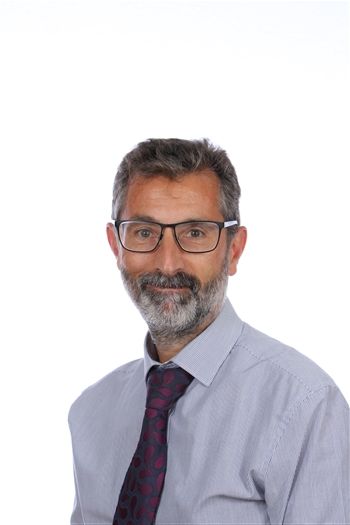Physics
Physics is a state of mind , a philosophy that allows you to look at the world through a different lens.
Qualification Information

Subject Leader
for Physics
Entry Requirements: Grade 6/6 in Science and 6 in
Physics GCSE
Length of Course: 2 Years
Assessment: 100% Exams: 3 externally assessed exams
Components: Paper 1 Modelling physics (37%)
Paper 2 Exploring physics (37%)
Paper 3 (26%) Unified physics.
Qualification: OCR A Level Biology
Module 1: Development of practical skills in physics - Developing planning, implementing, analysis and evaluating skills within an experimental context.
Module 2: Foundations of physics - The “basics”: physical quantities and units, measurements, scalars and vectors.
Module 3: Forces and motion - How things move: what can we use to describe motion, force, energy and momentum?
Module 4: Electrons, waves and photons - Electrons in circuits, how is energy transferred? Waves. The weird world of quantum physics. Module 5: Newtonian world and astrophysics (A Level only) - What do we know about gravity and space? Circular motion and oscillations. Thermal physics. Module 6: Particles and medical physics (A Level only) - Subatomic particles, electric and magnetic fields, capacitors and applications of medical physics.
Physicists explore the fundamental nature of almost everything we know of. They probe the furthest reaches of the earth to study the smallest pieces of matter. Join them to enter a world deep beneath the surface of normal human experience.
Studying A-level Physics offers an infinite number of amazing career opportunities including:
• Geophysicist/field seismologist • Healthcare scientist, medical physics • Higher education lecturer • Radiation protection practitioner • Research scientist (physical sciences) • Scientific laboratory technician • Secondary school teacher • Meteorologist • Structural engineer • Acoustic engineer • Product/process development scientist • Systems developer • Technical author. You can also move into engineering, astrophysics, chemical physics, nanotechnology, renewable energy and more, the opportunities are endless.
- Do I need to be good at Maths to do Physics?
The short answer is yes you need to be comfortable with numbers to access the course. Physics uses mathematics to help us understand how the world around us works. - Do I need Physics to be an engineer?
It's not compulsory but most students who go on to take an engineering degree have Maths and Physics A-levels so it's highly recommended. - Is it a 'boys subject'?
No, there are girls who choose this course every year and in other countries Physics is a more popular course for girls than boys. This is a course for anyone who enjoys the subject.
